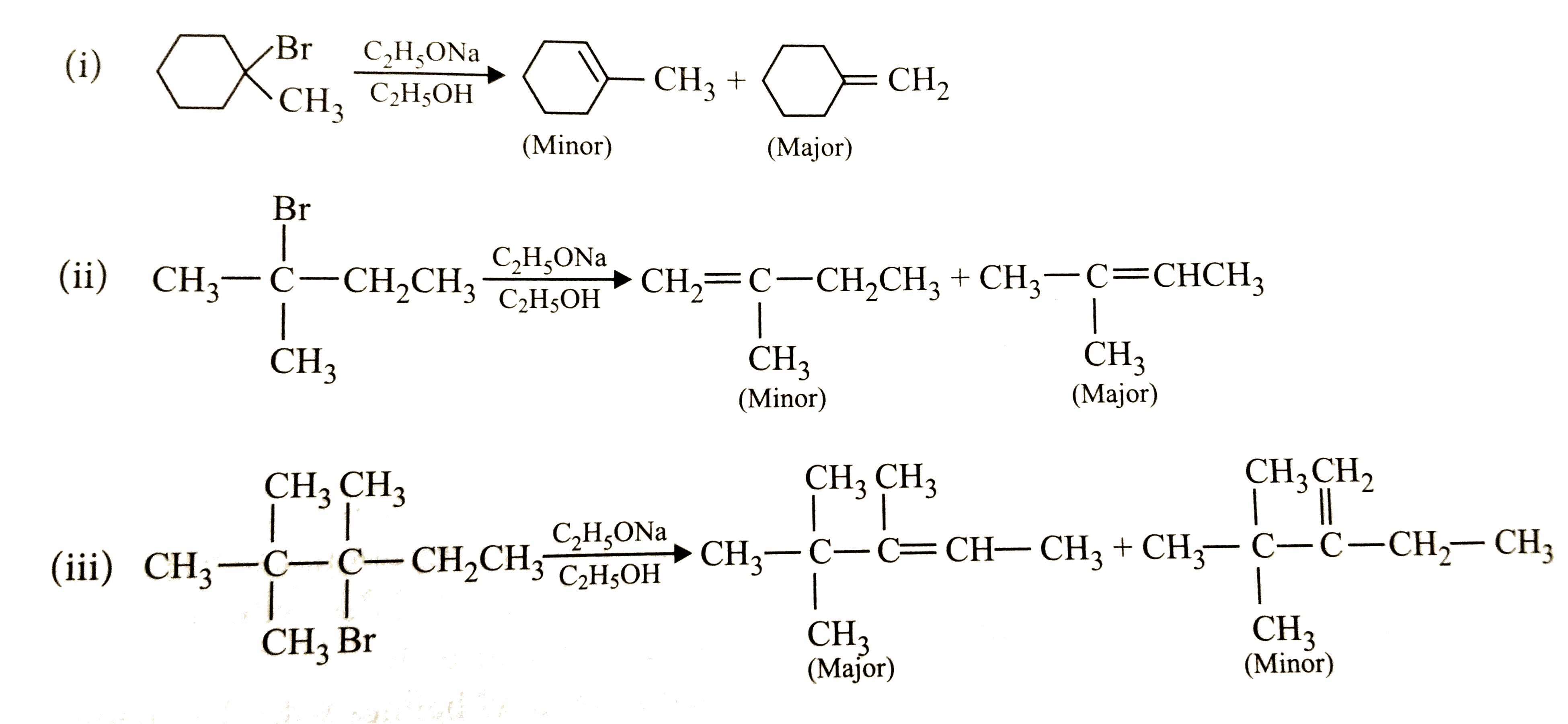Dehydrohalogenation of alkyl halides to form alkenes is promoted (or catalyzed) by
A
a base
B
an acid
C
both and acid as well as a base
D
neither an acid nor a base
Video Solution
Text Solution
The correct Answer is:A
Heating the alkyl halide with a strong base causes the reaction to take place:
(CH3)3CBrC2H5OK−−−−−−−−−→C2H5OH,55∘C(CH3)2C=CH2+KBr+C2H5OH
|
Topper's Solved these Questions
Similar Questions
Knowledge Check
Dehydrohalogenation of alkyl halide is
AAddition reactionBElimination reactionCRearrangement reactionDSubstitution reactionDehydrohalogenation of an alkyl halide is:
AAn addition reactionBA substitution reactionCA substitution reactionDAn oxidation reactionDehydrohalogenation of an alkyl halide is:
AAn addition reactionBA substitution reactionCA elimination reactionDAn oxidation reaction
Dehydrohalogenation of an alkyl halide is:
View SolutionDehydrohalogenation of an alkyl halide is called elimination.
View SolutionDehydrohalogenation of an alkyl halide by an E2 elimination is
View SolutionThe action of sodium on alkyl halide to form an alkane is called
View SolutionThe dehydration of alcohols to form alkenes is catalyzed by
View Solution

